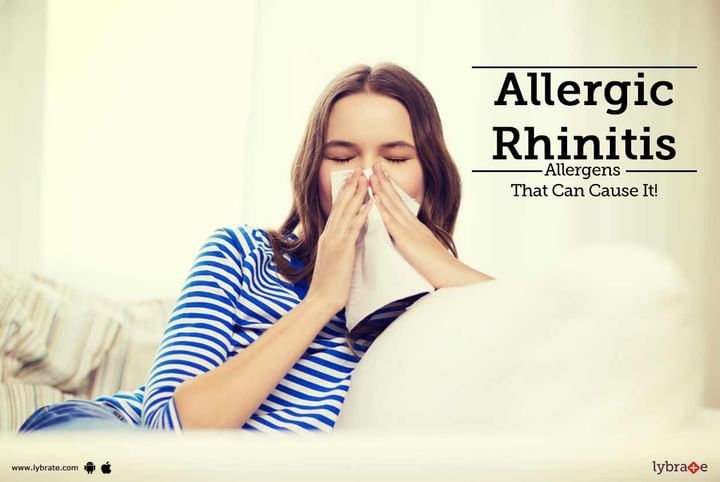Allergic Rhinitis - Allergens That Can Cause It!
Allergic Rhinitis is a very common condition and it is also known as hay fever. One in five people is usually affected by the same. It is an inflammation inside the nose that occurs when one breathes in something that he is allergic to such as dust, mould, pollen or animal dander. It also occurs if one eats a food that he is allergic to. The immune system of the body reacts to these allergens and attacks the particles inside the body. It results in allergic rhinitis symptoms such as watery nose and eyes and sneezing.
Allergic rhinitis is caused by an allergic reaction to allergens.
- Oversensitive Immune System: Whenever our immune system senses danger, it produces antibodies to fight them off. It is the same for allergens too, but allergic reactions do not occur after coming into contact with the allergen for the first time. It takes time, and hence, the immune system must also recognize it first and then produce the antibodies to fight it. Producing antibodies beforehand causes the cells to release a number of chemicals which results in sneezes, nose block and runny nose.
- Common Allergens: Tiny particles of allergens enter the body through the breathing process and cause rhinitis. Common allergens are-
- House dust mites: House dust mites are tiny insects. They are found on the bed, sofa, mattresses, pillow cover, etc. They feed on human skin flakes. They do not cause rhinitis directly; a chemical found in their excrement causes it. These mites can be found throughout the year, but their number increases during winter.
- Pollen and spores: Trees and grass produce tiny particles of pollen that cause rhinitis. Trees produce pollens from early to mid-spring. Grass between the end of spring and beginning of summer.
- Animals: Many people are allergic to animals. What causes rhinitis is not their fur but their urine and saliva. People are mostly affected by cats, dogs, horses, cattle, rabbits, guinea pigs, rodents and hamsters. An effective solution is to be around cats and dogs from an early age. This protects from the allergic reactions.
- Work related allergens: There happen to be a few allergens at the workplace, such as wood dust, flour dust, latex etc.
Symptoms are dependent on the severity of rhinitis
- Headache
- Sneezing
- Blocked and runny nose
- Sore throat
- Itchy nose, eye, mouth, throat and skin
- Red swollen watery eyes
- Dark circles
- Coughing
- Hives
- Trouble smelling
- Pressure in nose and cheeks
Ayurvedic Allergic Rhinitis Treatment
Allergic Rhinitis from an Ayurvedic perspective is caused due to the ama (toxins) present in the body and due to low immunity. Accumulated ama aggravates the levels of Kapha (Water) in the body, giving rise to different symptoms of allergies.
Ayurveda believes in balancing the three doshas present in the human body, thus treating the disease on the whole. Treatment involves clearing the sinuses and expelling phlegm, alleviating the relevant dosha and detoxification. To permanently resolve this disorder, dietary and lifestyle adjustments may be necessary in addition to the strengthening of the immune system. Panchakarma is an effective means of treating Allergic Rhinitis.
Diet & Lifestyle Advice
- Have freshly-prepared, warm food.
- Avoid stale and junk food.
- Kapha-aggravating foods like dairy, wheat, sugar, potatoes, tomatoes, peppers, bananas, oranges and grapefruits should be avoided.
- Cover your nose in dusty or cold surroundings.
- Whenever you feel slight congestion, take a steam inhalation treatment.
- Avoid sleeping in the open and cover yourself properly before going to sleep.
Nasyam Therapy which is part of Panchkarma is very effective in cleaning of sinuses and improving immunity of nasal mucosal membrane.
In case you have a concern or query you can always consult an expert & get answers to your questions!



+1.svg)
